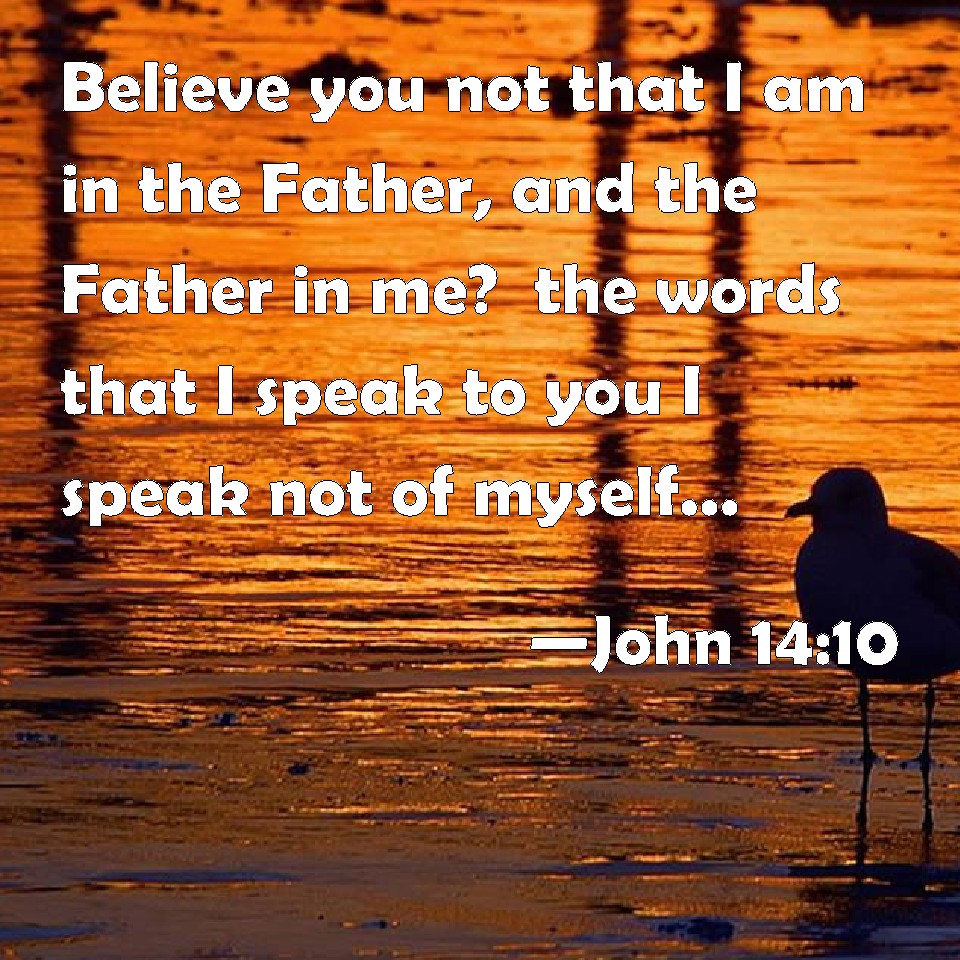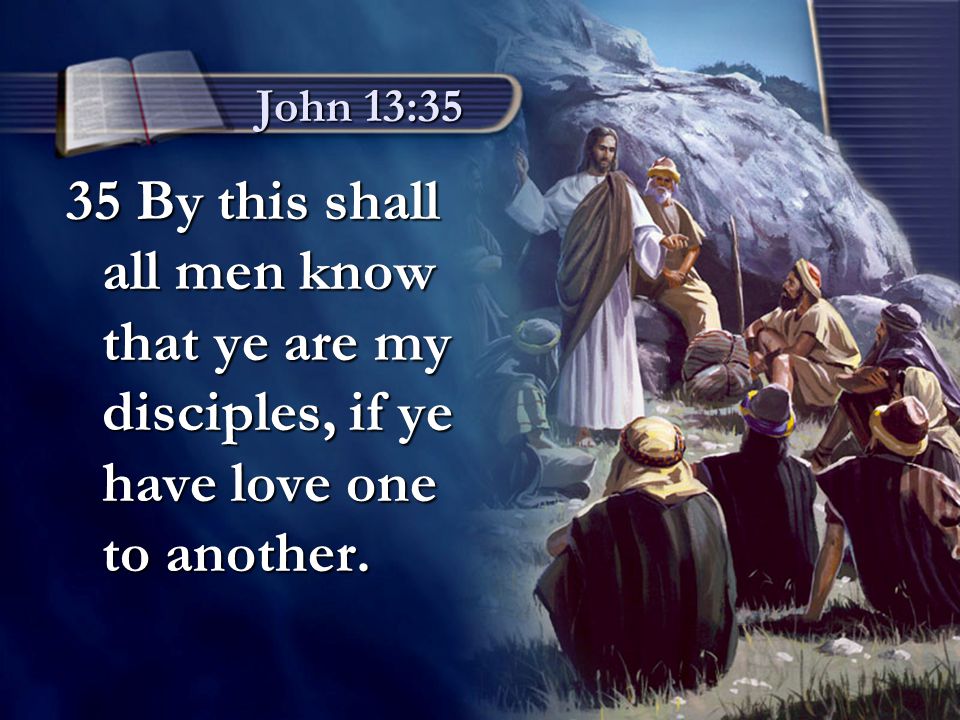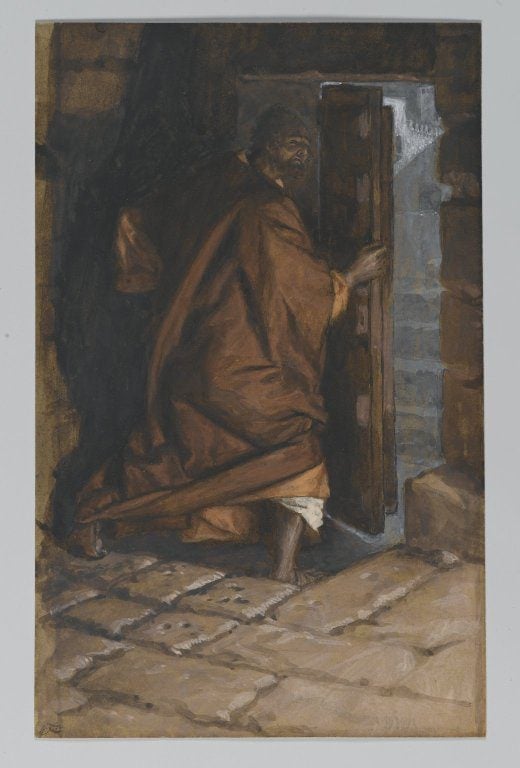John 14: 10-11.
Believest thou not that I am in the Father, and the Father in Me? the words that I speak unto you I speak not of Myself: but the Father that dwelleth in Me, He doeth the works.
Believe Me that I am in the Father, and the Father in Me: or else believe Me for the very works’ sake.

As Jesus continued to respond to Philip’s request to show them the Father, He makes the case that it is their lack of understanding and belief that is the problem.
Many try to present the Old Testament God as only a God of anger and retribution, not seeing the many evidences of the love and mercy of God in the Old Testament. Exodus 35: 5-9 is just one example of many. Read the Psalms to see the Old Testament God of mercy and compassion. The idea that it wasn’t until Jesus came that we saw a different side of God is nonsense, spawned by Satan. The idea that we ought to disconnect from the Old Testament is exactly the same–spawned by Satan. It is all one Book. To eliminate any part of it goes directly against the purpose for which it was given, and will be severely punished (Rev. 22:18-19; Deut. 12:32; Rev. 1:1-3).
Jesus then states, as a recurring theme in John, that He is totally dependent upon the Father, Who is His authority. He does nothing in Himself, but relies on the Father. He does nothing apart from the Father; in fact, He makes it clear that it is the Father in Him Who does the works that He has performed.
Finally, He says, “If you can’t believe that I AM in the Father, and the Father in Me, then believe in Me because of the works that I have done.” (My own words)
Note here that Jesus asks the disciples to not only believe IN Him, but to believe Him. That is, every word that Jesus spoke was the truth. He was telling them that true faith is to believe even before they could completely understand.









